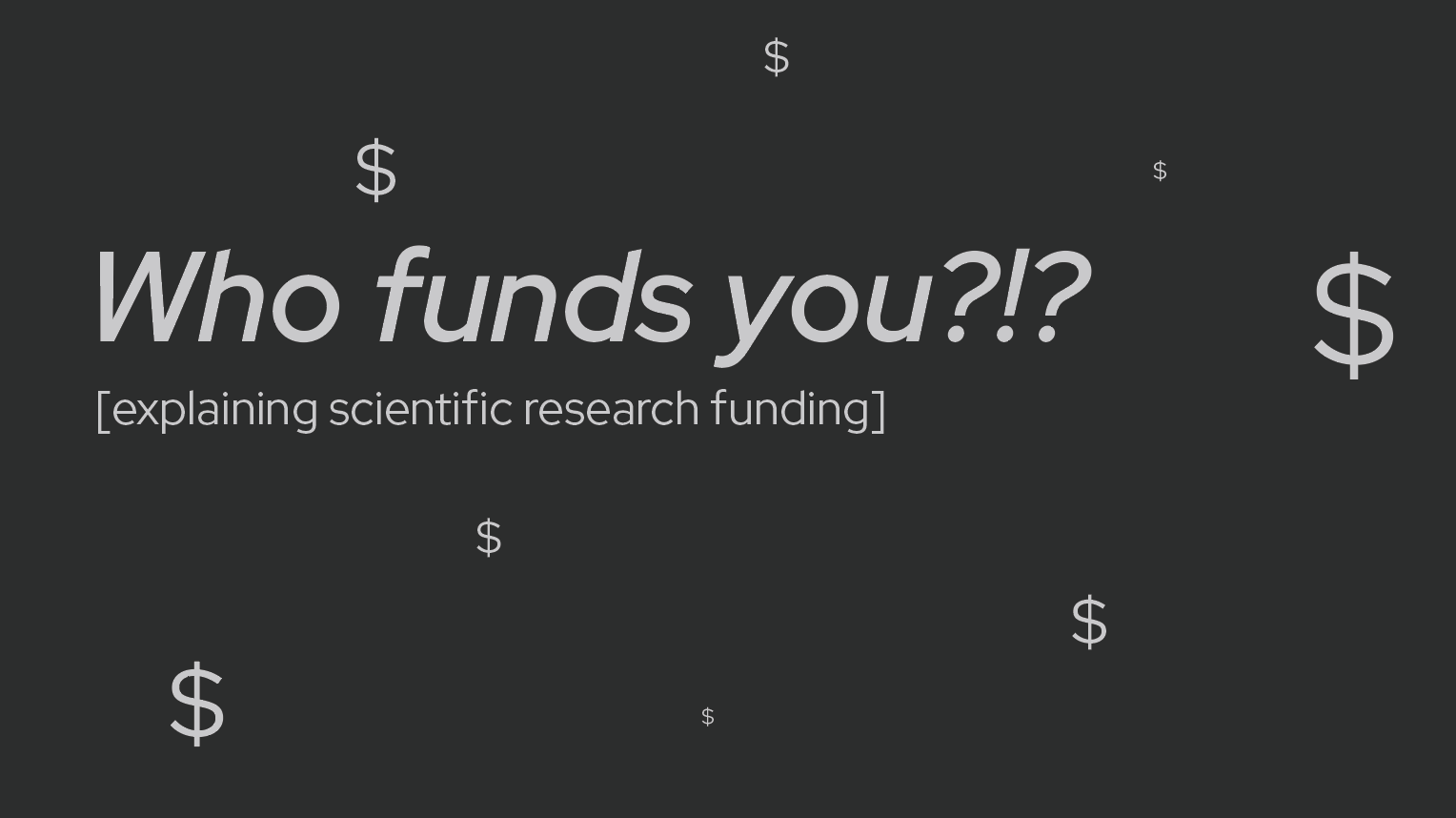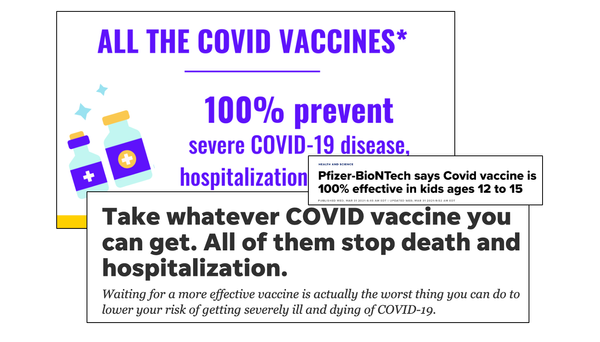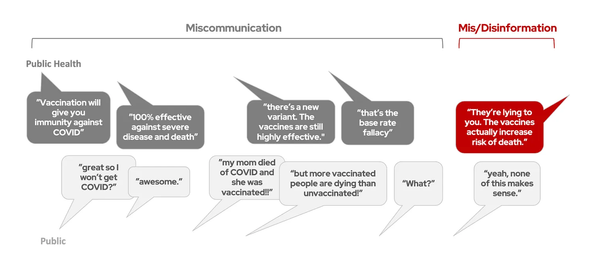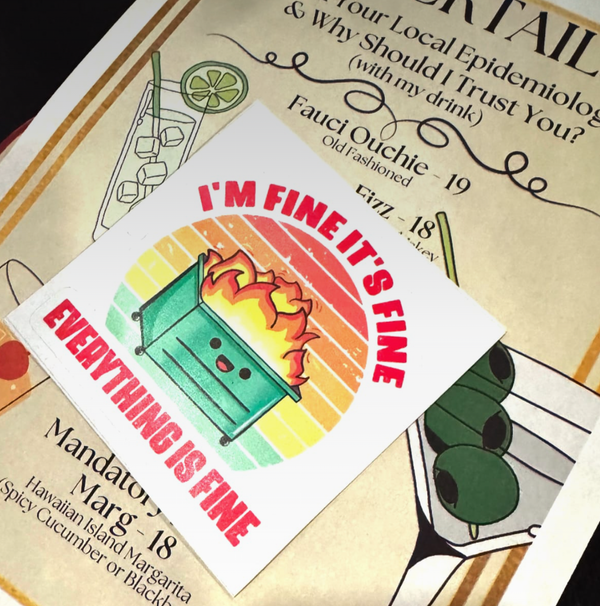Who funds you? Explaining research funding.

If I had a nickel for every time someone has accusingly asked me “who funds you??”, I wouldn’t have enough money to buy a box of pipette tips, because research is expensive and requires funding to do much of anything.
With the confusion and distrust circulating around science and institutions, the topic of scientific funding has become a focus of discussion, often presented in a confusing and misleading way. Some are immediately suspicious if research was funded by a pharmaceutical company, others are wary if the government has funded research, and still others see funding by nonprofit organizations such as the Bill and Melinda Gates foundation as a clear sign that something is amiss. So let’s discuss it — just how expensive is it to do science anyways, and who pays for it?
For simplicity, I am going to focus on biomedical research funding in the United States, as that is the funding structure with which I am most familiar.
How much does scientific research cost?
Science is expensive. Research requires specialized labs that contain the equipment necessary to do experiments, specialized disposable materials used for each step in the experiment, trained personnel who know how to do the experiments, and overhead costs to help pay for the facilities that house the labs.
Imagine if you ordered Hello Fresh for every single meal, but also had to buy specialized sterile equipment to cook, clean, and eat with, and you had to pay for an extra room with specialized filtration and sterilization procedures to eat the meal in.
That’s about what it’s like. This all adds up very quickly. Research is expensive.
Someone pays for it, or it doesn't happen.
But research is very much worth it. If we want to keep doing science, making more discoveries, and advancing medicine, we must continue to do research.
Without research we would not have things like insulin, antibiotics, or cancer treatments. We would not have any randomized controlled trials, we would not develop any new therapies, and all of our medical progress over the last hundred years would come to a standstill. Science is definitely worth doing, even though it is expensive. And if we stopped doing research, we would stop training new scientists, so we would eventually lose the ability to do research even if we wanted to (because no one would know how to do it.)
Who pays for it?
An individual scientist, unless they happen to have hundreds of thousands of dollars to spare, cannot possibly pay for their own research. Not only would they have to pay for all the supplies, equipment, and lab space to do the experiments, but they also would not have a salary.
So who pays for it? Someone else. Right now in the US, there are three main sources of research funding: the government, private businesses, and nonprofit foundations.
The US government funds billions of dollars of research on all sorts of topics. To apply for funding, scientists write grant proposals telling funding agencies like the National Institute of Health or the National Science Foundation what research they are wanting to do. I wrote one of these grants during my PhD: it involved outlining my project, providing preliminary data, and giving details of the experiments I planned to do. These proposals are reviewed by experts in the field and given scores. Proposals with the best scores get funded, and then scientists have money to pay for salaries and equipment. Most academic scientists (scientist who work at universities) get their funding in this way. Companies can also fund their own research, either through money from investors or sales of other products. Some companies also apply for government funding. Finally, many nonprofits fund research. Some of these nonprofits are devoted to a specific disease and raise money through charity events. Other nonprofits accept grant applications from scientists in many different fields.
Who funds you?
Within the realm of academia, this is a totally normal question. When researchers share their results at scientific meetings or publish their results in a journal, it is normal to list the grants and funding agencies that funded the work. This is not so much a “disclosure” of who funds them, but more of a “thank you for paying for all the pipettes that made this research possible!”
Some researchers may have a financial conflict of interest — say they receive financial compensation for serving on the board of scientific advisors for some biomedical company, they also own stock in the company, and they are presenting the results of a study funded by that company. That person has a financial stake in the success of the company (and thus the success of the research they’re presenting). In these cases, it is standard to disclose this financial relationship so everyone knows and it’s out in the open.
Financial conflicts of interest are real, and within the world of academia, there are standard methods by which these conflicts of interests are disclosed and addressed. If you work at an academic research university, most likely you are required to disclose financial connections or payments you receive from anything remotely related to your job. Universities take this stuff very seriously.
Just asking questions....
But online, the question “who funds you?” has taken a different turn. With the rise of suspicions towards institutions and the government and the desire to of many discredit scientists with whom they disagree, the source of research funding has become a common point of interrogation.
For example, one person on twitter giddily found that I, along with other scientists, had received funding from the NIH, and immediately assumed this was evidence of something nefarious because they found “who funded me.” Never mind that nearly every biomedical research scientist in the United States receives funding from the NIH as well. The fact that I had NIH funding and had retweeted a virologist who also had NIH funding was enough to suggest to them that they had uncovered a web of suspicious behavior.
Everyone who funds research has enough money to fund research
All funders of research have one thing in common: they have enough money to fund research. For those who are suspicious of institutions and wealthy individuals, essentially every scientific funding source is on the ‘suspects’ list. Funding research requires millions of dollars, so by definition, all research funding sources have millions of dollars at their disposal. This creates a convenient yet unfounded argument strategy for anyone who wishes to distrust scientists.
When someone asks “who funds you?” there is usually not an answer that would be deemed acceptable. The NIH? Part of a government plot. A private company? How dare they fund their own research. A private donor? Millionaires can’t be trusted. So next time someone implies corruption because a scientist is funded by the NIH or a private company, consider asking them ‘How should they fund their research? What funding source would you deem acceptable?’ Often, they cannot provide an answer.
Research is very much worth doing, and it costs money. Essentially every scientist on the planet receives funding from an institution with lots of money. This is not a sign of something nefarious, but is the reality of the expense of science. All scientists have funding, and we list it on our CVs.
Sealioning
Is it appropriate to ask about funding sources of scientists communicating online? It depends. If it’s a good faith enquiry, where someone genuinely wants to know, and will accept the answer when provided, then absolutely. It’s a totally reasonable question. But when no answer will satisfy them or they accuse the scientist of lying when an answer is provided, then this question becomes a form of sealioning.
Who funds me?
But to be fair, I will answer the question — who funds me?
I currently don’t have any grant funding as I am in my first year of residency and am too busy to apply for grants right now. During my PhD, I received a grant from the NIH that funded my stipend and tuition for three years. I also received a few small travel awards during my PhD (these awards help poor graduate students attend conferences and/or travel to get additional training.) I am also married and my husband shares his money with me, because he is very kind and reasonable. He sometimes buys me sushi.
How about this site — who funds me to run You Can Know Things? For a long time, the answer was: nobody! In fact, I have been losing money on this website, as it takes money to host a website, pay for web development software, pay for the service that sends out emails to you all, among other things. Last year, at the urging of some of you, I created a Buy Me a Coffee account for people who wanted to donate, which helps offset some of the costs. So the answer now is: you fund me! (And thank you!)




